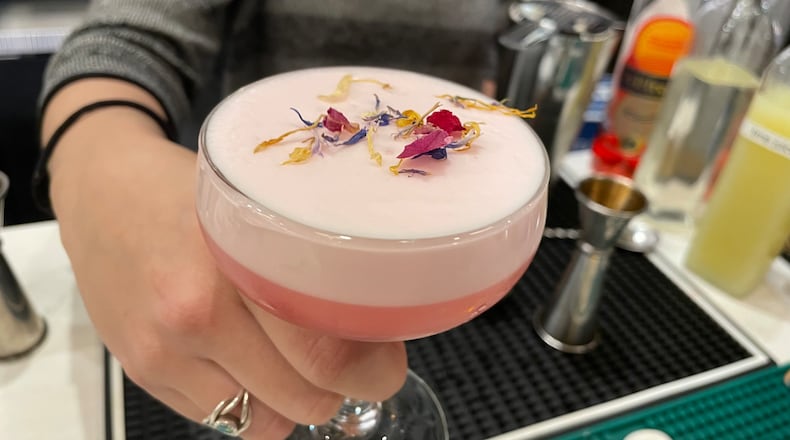Some connect it to the fresh start of the New Year and the effort to pursue new exercise routines and weight loss, she said.
Local restaurants offer alternatives for people who choose to participate in Dry January. From nonalcoholic beer and wine to cocktails made with zero-proof spirits, those participating have several options.
“The increased popularity of ‘mocktails’ has helped move some people away from alcoholic drinks permanently,” Jones-Kelley said. “They can be prepared with fruits and other natural ingredients that offer fresh taste, keep you hydrated and provide something to hold while mingling at a social event if you’re shy.”
She offered several other tips for those planning to participate in the challenge such as:
- Finding other activities or hobbies to replace the time and thoughts focused on drinking.
- Meeting with a counselor to understand what triggers the desire to have a drink of alcohol.
“If a month seems too long, then try it for a shorter period, maybe a week or three day increments,” Jones-Kelley said.
Some people participate in “Damp January” with the idea of reducing alcohol consumption instead of eliminating it.
“If you are out socializing with others or at a party, maybe ask to have your alcohol pour reduced by half or just have one alcoholic drink and consider only consuming nonalcoholic drinks after the first drink for the rest of the evening,” Jones-Kelley said. “Another consideration is to follow one alcoholic drink with a full glass of water to extend the amount of time before you ingest more alcohol in a short time frame as well as to rehydrate.”
It’s important to have a plan when participating in “Damp January” to make a change in your relationship with alcohol.
“The health benefits of avoiding or reducing alcohol include weight loss, lowered blood pressure, better sleep, protecting liver function, potentially avoiding dehydration, upset stomach and headaches, to name a few,” Jones-Kelley said.
She encourages people to take the time to learn more about the health benefits of reducing or eliminating alcohol consumption in the same way that they study other health and wellness topics.
“I would encourage them to try it, even if they cannot restrict drinking for the full month,” Jones-Kelley said. “Take it a day at a time. The health and wellness benefits are well worth it. Longtime habits rarely change in a day. Set a goal and stay focused. The energy gain, mental clarity and physical well-being are worth it.”
MORE DETAILS
The “Dry January” challenge started in 2013 with 4,000 people, according to Alcohol Change UK’s website. In 2023, over 175,000 people took part.
Alcohol Change UK is a charity working for a society that is free from the harm caused by alcohol, the website states.
“Alcohol is a part of many of our lives. We use it for celebration, for comfort, to socialize, to wind down, to cope. We treat it differently to other drugs; it’s legal, socially acceptable, even encouraged,” the website states. “We are not anti-alcohol; we are for alcohol change. We are for a future in which people drink as a conscious choice, not a default; where the issues which lead to alcohol problems — like poverty, mental health issues, homelessness — are addressed; where those of us who drink too much, and our loved ones, have access to high-quality support whenever we need it, without shame or stigma.”
About the Author

